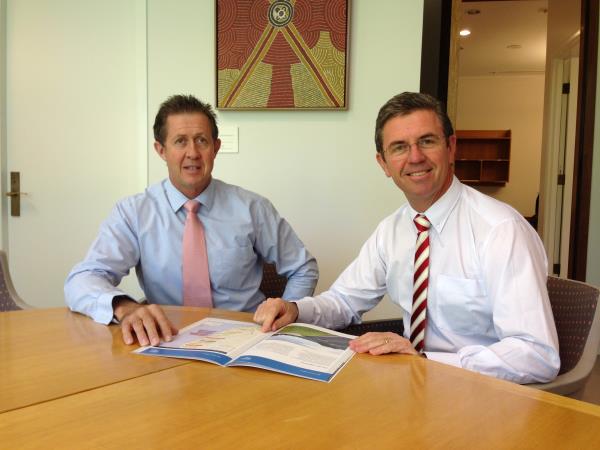THE Mid North Coast is set to benefit from a record infrastructure investment in the Federal Budget, Federal North Coast Nationals say.
Federal Cowper MP Luke Hartsuyker and Federal Lyne MP David Gillespie said the budget would deliver increased investments in the Pacific Highway and local roads.
“Despite inheriting a budget mess, the Abbott/Truss Government is rebuilding the economy and infrastructure investment is an important part of that commitment.
“This budget will ensure the continuation of the current $4 billion schedule of Pacific Highway works. It also includes more money for local roads through additional investments in the Roads 2 Recovery and Black Spots programs.”
Mr Hartsuyker said all Australians would contribute to repairing the budget.
“At the election, the Coalition made the solemn promise to get the Budget back under control, as well as scrap the carbon tax, end the waste, stop the boats and build the roads of the 21st century. This budget keeps that pledge,” Mr Hartsuyker said.
“The budget is part of the Abbott/Truss Government’s Economic Action Strategy to build a strong, prosperous economy for a safe, secure Australia.
“The government has made the difficult but necessary decisions to put the Budget on a more sustainable footing so that we can all share in prosperity in the future.
“We are all playing a part – because it’s in sharing the load that we lighten the load.
“Labor ran up five record deficits and left $123 billion in future deficits. If we took no action, debt would have hit $667 billion. Every month, the government is paying $1 billion in interest costs on Labor’s debt.
“Governments, like households, must live within their means.
“Because of this budget, Labor’s deficits have been reduced by $43 billion and debt is forecast to be about $275 billion lower in a decade.
Mr Hartsuyker and Dr Gillespie said the budget included:
* Australia’s biggest infrastructure program – with $50 billion in transport investment by 2019/20.
* Creating the world’s biggest medical research endowment fund – the $20 billion Medical Research Future Fund. It will find the cures of the future and be funded by the health reforms.
* Requiring young people who can work to be earning, learning or participating in Work for the Dole.
* Providing stronger incentives to businesses to hire older workers – businesses will receive up to $10,000 for employing workers older than 50.
* Funding for additional road infrastructure by re-introducing twice-yearly indexation of fuel excise to CPI from 1 August.
* Providing Australian universities with the freedom to innovate through full deregulation.
* Reforming the age pension to make it more sustainable – that includes gradually increasing the age pension age to 70 by 1 July 2035.
* Freezing politicians’ pay and ending the life-time gold pass.
* Changing family payments to target support to those who need it most.
* And, introducing a three-year Temporary Budget Repair Levy – payable, from July, by individuals with a taxable income above $180,000 at a rate of two per cent. The levy will ensure those on a higher income contribute to the budget repair.
Dr Gillespie said the government was honouring its commitment to reduce the overall tax burden – so families could plan their future and get ahead.
“Every year, the carbon tax is a $9 billion hit on the economy and it costs an average family $550 … we will scrap the carbon tax,” he said.
“Fewer than four per cent of taxpayers will pay the new Temporary Budget Repair Levy on high income earners making over $180,000.”
Dr Gillespie said the Budget was the largest roads budget in Australian history and would help families across Australia spend less time in traffic and improve Australia’s productivity.
“This record roads budget will, in part, be funded by the change in fuel excise. The change will cost about 40 cents a week, depending how far you travel. The increase in fuel excise will be directed towards road funding.”
Dr Gillespie said medical research will benefit from the changes to the Medicare Co-payment. Prevention is always better than cure – and this will become a $20 billion fund in our future health.
“By making the health system more sustainable and investing in medical research, we are ensuring that Australia remains the best and healthiest place in the world to raise a family and care for loved ones.”
“The key goal of the budget is to strengthen the economy – because when you strengthen the economy, small businesses succeed, families have less pressure on them and jobs are created.”


